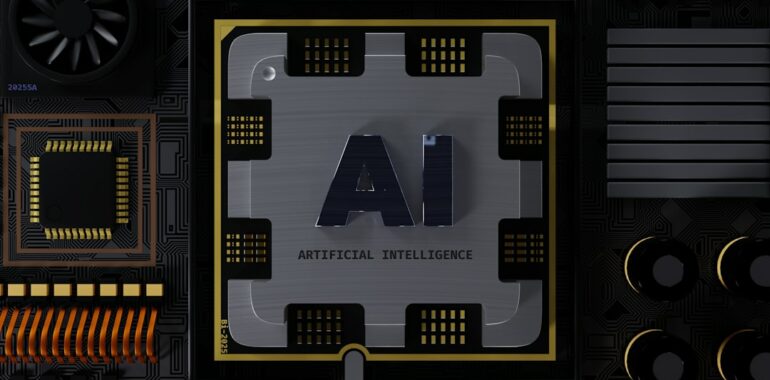AI Matching Human Intelligence: Insights from Google DeepMind and Microsoft AI Leaders

Discover the latest perspectives from Google DeepMind and Microsoft AI CEOs on how AI is evolving to match human intelligence and its implications for business planning.
Introduction
Artificial Intelligence (AI) has been at the forefront of technological innovation, progressively narrowing the gap between machine capabilities and human intelligence. As businesses strive to leverage AI for strategic planning, insights from leading AI experts become invaluable. This article delves into the perspectives of Google DeepMind’s CEO Demis Hassabis and Microsoft AI CEO Mustafa Suleyman on AI’s trajectory toward matching human intelligence and explores the implications for business planning.
The Current State of AI: Insights from Google DeepMind
Demis Hassabis, CEO of Google DeepMind, offers a measured outlook on the advancement of AI Human Intelligence. He predicts that Artificial General Intelligence (AGI)—AI systems that can perform any intellectual task a human can—could emerge within the next five to ten years. This timeline underscores a significant evolution in AI but highlights that current systems still grapple with understanding real-world contexts.
“We’re not quite there yet. These systems are very impressive at certain things. But there are other things they can’t do yet, and we’ve still got quite a lot of research work to go before that.”
– Demis Hassabis, CEO of Google DeepMind
Hassabis emphasizes that while AI has achieved remarkable success in controlled environments, such as mastering complex games like Go, translating these capabilities to real-world applications remains a substantial challenge. The primary obstacle is enabling AI to comprehend and navigate the dynamic and nuanced contexts inherent in everyday human interactions and business environments.
Microsoft’s Perspective: Mustafa Suleyman on AI’s Future
Aligning closely with Hassabis, Mustafa Suleyman, CEO of Microsoft AI, shares a similar outlook on the emergence of AGI. Suleyman concurs that reaching human-equivalent intelligence in AI will require at least another five to ten years of intensive research and development. This perspective is crucial for businesses in planning long-term AI integration strategies, ensuring they remain adaptable to future advancements.
Contrasting Views in the AI Industry
While Hassabis and Suleyman advocate for a cautious approach, other industry leaders like Sam Altman of OpenAI and Elon Musk have posited more aggressive timelines, suggesting AGI could be realized within two to three years. This divergence in predictions highlights the uncertainty and complexity surrounding AI development.
The contrasting viewpoints emphasize the importance for businesses to adopt flexible AI strategies, capable of evolving with the technology’s progress. Companies must balance optimism with realism, preparing for rapid advancements while acknowledging current limitations.
Implications for Business Planning
The convergence of AI towards human-like intelligence has profound implications for business planning. Here are key areas where businesses can leverage AI Human Intelligence:
Strategic Decision Making
AI can analyze vast datasets to uncover patterns and insights that inform strategic decisions. By integrating AI-driven analytics, businesses can enhance their forecasting accuracy and identify new market opportunities.
Operational Efficiency
Automation of routine tasks through AI can lead to significant improvements in operational efficiency. This allows human employees to focus on more complex and creative aspects of the business, fostering innovation and productivity.
Personalized Customer Experiences
AI enables businesses to tailor their products and services to individual customer preferences. Personalized marketing strategies and customer service solutions can enhance customer satisfaction and loyalty.
Risk Management
AI systems can predict potential risks by analyzing historical data and current trends. Businesses can proactively address these risks, minimizing disruptions and safeguarding their operations.
The Role of TOPY AI Revolution in AI-Driven Business Planning
Amidst these advancements, TOPY AI Revolution emerges as a pivotal tool for startups and entrepreneurs aiming to harness the power of AI in their business planning processes. TOPY AI offers:
- One Click Co-Founder Matching: Quickly connect with potential co-founders whose skills and experiences complement yours, eliminating the lengthy search process.
- Rapid Business Plan Generation: Create comprehensive and actionable business plans in minutes, ensuring they are aligned with current market dynamics.
- Immediate Traction Strategies: Access tools and resources designed to help startups gain traction swiftly through data-driven analytics and marketing strategies.
By integrating tools like TOPY AI Revolution, businesses can streamline their startup launch processes, accelerating growth and enhancing their strategic planning capabilities through AI Human Intelligence.
Conclusion
The journey towards AI Human Intelligence is marked by both remarkable achievements and significant challenges. Insights from leaders like Demis Hassabis and Mustafa Suleyman provide a grounded perspective on the realistic timelines and the complexities involved in achieving AGI. For businesses, these advancements present both opportunities and the need for strategic adaptability. Embracing AI-driven tools, such as TOPY AI Revolution, can empower businesses to navigate this evolving landscape effectively, ensuring they remain competitive and innovative in an increasingly AI-centric world.
Ready to revolutionize your startup launch process with AI Human Intelligence? Start your journey with TOPY AI Revolution today!




